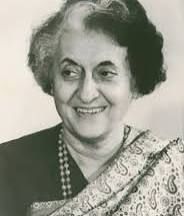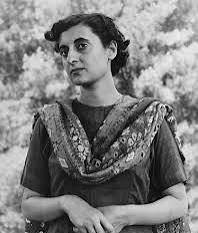Declaration of Emergency in 1975 : A Dark Chapter in Indian History
By Lokanath Mishra
The declaration of emergency in 1975 marked a significant turning point in Indian history, when Prime Minister Indira Gandhi suspended democratic freedoms and imposed authoritarian rule. This period, which lasted 21 months until March 1977, saw widespread human rights abuses, suppression of dissent, and a significant erosion of democratic institutions.

The emergency was declared on June 25, 1975, amidst growing political unrest and opposition to Indira Gandhi’s government. The Allahabad High Court had recently declared Gandhi’s election to the Lok Sabha void due to alleged electoral malpractices. This ruling posed a direct threat to her prime ministership, prompting Gandhi to recommend the proclamation of emergency to President Fakhruddin Ali Ahmed .

The government cited “internal disturbance” as the reason for imposing the emergency, pointing to mass protests, strikes, and opposition movements as signs of anarchy. However, the move was widely seen as an attempt to consolidate power and stifle opposition .
During the emergency, the government:

- Suspended Fundamental Rights: Most fundamental rights enshrined in the Constitution were suspended or restricted.
- Imposed Press Censorship: Media outlets were strictly censored, and many newspapers protested by leaving blank columns or publishing government-approved content.
- Arrests and Detentions: Opposition leaders, journalists, activists, and anyone perceived as a threat to the government were detained without trial.
- Forced Sterilization: A mass campaign for vasectomy was spearheaded by Sanjay Gandhi, aiming at population control but implemented coercively .
The emergency had far-reaching consequences, including: - Centralization of Power: Power was heavily centralized in the Prime Minister’s Office, marginalizing the cabinet and restricting meaningful dialogue and decision-making.
- Repression and Fear: The government’s grip on power was tightened, leading to a climate of fear and surveillance.
- Stifling of Opposition: Political opposition was almost entirely suppressed, with many opposition leaders imprisoned or forced to go underground.
- Economic Impacts: The emergency led to inefficiencies and slowed down economic growth, with further nationalization of industries and controls on labor rights .
The emergency remains a pivotal chapter in India’s history, serving as a cautionary tale about the fragility of democratic institutions. It underscores the importance of checks and balances and the need for vigilant citizenry to safeguard democratic values. The 44th Amendment Act of 1978 was introduced to prevent misuse of emergency provisions, replacing “internal disturbance” with “armed rebellion” as grounds for emergency declaration .

